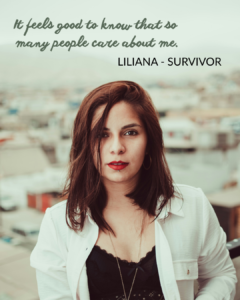“The moment of recovery is without a doubt, one of the most dramatic moments an advocate can be invited into; it is also one of the most sacred.”
I can proudly say that over the last 11 years we have been honored to work with local, state, federal, and international law enforcement. Fighting human trafficking requires an understanding of the complex web of global crime networks that make possible the recruitment and sale of people for labor and sex.
After getting to know our survivor advocacy program, which approaches healing for survivors of human trafficking through a trust based relationship with an advocate, law enforcement have invited us to participate in operations designed to recover victims of human trafficking.
So what do we do once on the scene? Why is an advocate helpful in that high intensity situation?
I sat down recently with members of our Bryan College Station, TX team to get their perspective – I think you’ll be fascinated by what they shared.
They described a scene to me of being called to a hotel where law enforcement sat in a room the floor above our advocates, who waited patiently to hear news of victims of human trafficking that would be recovered.
Everything Unbound Now advocates do is trauma-informed, which becomes crucial in these moments of transfer from recovery in the hotel room with law enforcement to the room full of advocates, where a survivor is allowed back in the driver’s seat of their life again.
From the moment they walk into the room, our advocates do everything they can to restore the power of choice – something stolen from them by their traffickers. Whether asking where they would prefer to sit or what food they might like to eat, our advocates are working to remove anxiety and restore dignity in every way possible for the survivor in front of them.
Naomi Rijpstra, Director of Programs in Bryan College Station, shared about the difference an Unbound Now advocate makes on a law enforcement operation by explaining that they free everyone else up to do their job.
“We’re the only ones there that can focus solely on the survivor. Our advocates put the survivor’s needs at the center, translating the jargon and actions of the other professionals in the room, allowing law enforcement and medical staff to focus on their jobs. Without us there, victims are often confused and scared.”
It’s a crucial moment, the importance of which can’t be overstated as our staff work to set every survivor up on a course to get to safety and receive our long term services as they desire.
Every journey to healing has a starting point and we are so grateful to get to be there for each step.

